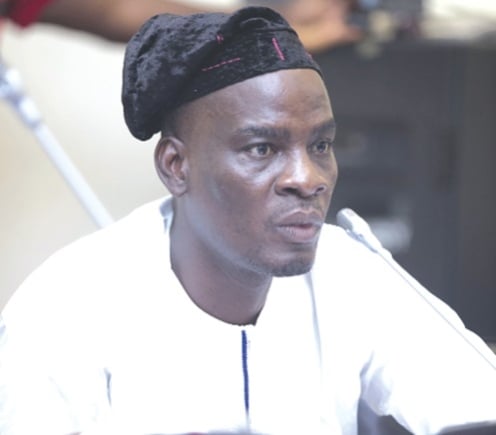Haruna Iddrisu, Ghana’s Education Minister-Designate, has publicly reiterated his staunch opposition to LGBTQ+ practices, characterizing them as fundamentally incompatible with his personal beliefs, his Muslim faith, and the broader ethical framework of Ghanaian society. He argued that these practices represent a cultural transgression and are diametrically opposed to the values instilled in him and, he believes, most Ghanaians. His statement underscores the deeply ingrained cultural and religious sensitivities surrounding LGBTQ+ issues in Ghana and highlights the complex interplay between individual rights, societal norms, and legislative processes. Iddrisu’s position reflects a sentiment shared by many in Ghana who view LGBTQ+ rights as a Western imposition that threatens to erode the country’s cultural fabric. This perspective often frames the debate as a clash between universal human rights and the preservation of local traditions.
Iddrisu’s pronouncements coincide with a significant development in the legislative trajectory of the controversial Anti-LGBTQ+ bill. President John Dramani Mahama has proposed a strategic shift, advocating for the bill to be introduced as a government-sponsored initiative rather than a private member’s bill. This move, according to President Mahama, would bolster the bill’s legitimacy and significantly improve its chances of parliamentary approval. By assuming ownership of the proposed legislation, the government aims to address the widespread public concern regarding LGBTQ+ activities while simultaneously navigating the complexities of Ghana’s legal and cultural landscape. The President’s proposal signals a potential intensification of the government’s engagement with this highly charged issue.
The proposed shift in legislative strategy has reignited the national discourse surrounding the bill’s future and the broader debate on LGBTQ+ rights in Ghana. The country finds itself grappling with the delicate balancing act of reconciling global calls for inclusivity and diversity with the imperative to safeguard its unique cultural heritage. This tension underscores the challenges faced by many nations in navigating the evolving understanding of human rights in the context of deeply held cultural and religious beliefs. The debate also highlights the potential for legislative action to either reinforce existing societal norms or to catalyze social change.
During his appearance before Parliament’s Appointments Committee, Iddrisu explicitly linked his opposition to LGBTQ+ practices to his religious convictions, stating that such practices are “repugnant” to his Muslim values and ethics. This explicit connection between religious beliefs and opposition to LGBTQ+ rights is a common theme in the Ghanaian discourse, reflecting the significant influence of religious institutions and doctrines on public opinion and policymaking. He further emphasized his belief that most Ghanaian parents would object to their children being raised in an environment that accepts or promotes LGBTQ+ lifestyles, arguing that such an upbringing would deviate from traditional Ghanaian values.
Iddrisu’s articulation of his position reinforces the prevailing social conservatism that characterizes the Ghanaian context. He stresses the importance of respecting and upholding Ghana’s cultural values, implying that acceptance of LGBTQ+ rights would represent a deviation from these established norms. This perspective often presents LGBTQ+ individuals as outsiders and their practices as a threat to the moral fabric of society. It also underscores the potential for social stigma and discrimination faced by LGBTQ+ individuals in Ghana, where they may be ostracized and marginalized due to their non-conforming identities.
By asserting that Ghana has a “duty to preserve” its values “within the ambit of the constitution,” Iddrisu implicitly suggests that the constitution itself provides a framework for upholding traditional cultural norms, even if those norms conflict with certain individual rights. This interpretation opens up a broader discussion about the potential limitations of constitutional protections and the extent to which cultural values can legitimately restrict individual freedoms. It also highlights the complex relationship between legal frameworks and social realities, where the application and interpretation of laws are often influenced by prevailing societal beliefs and attitudes. The ensuing debate will likely focus on how to reconcile competing claims of individual rights and cultural preservation within the framework of Ghana’s constitutional democracy.


